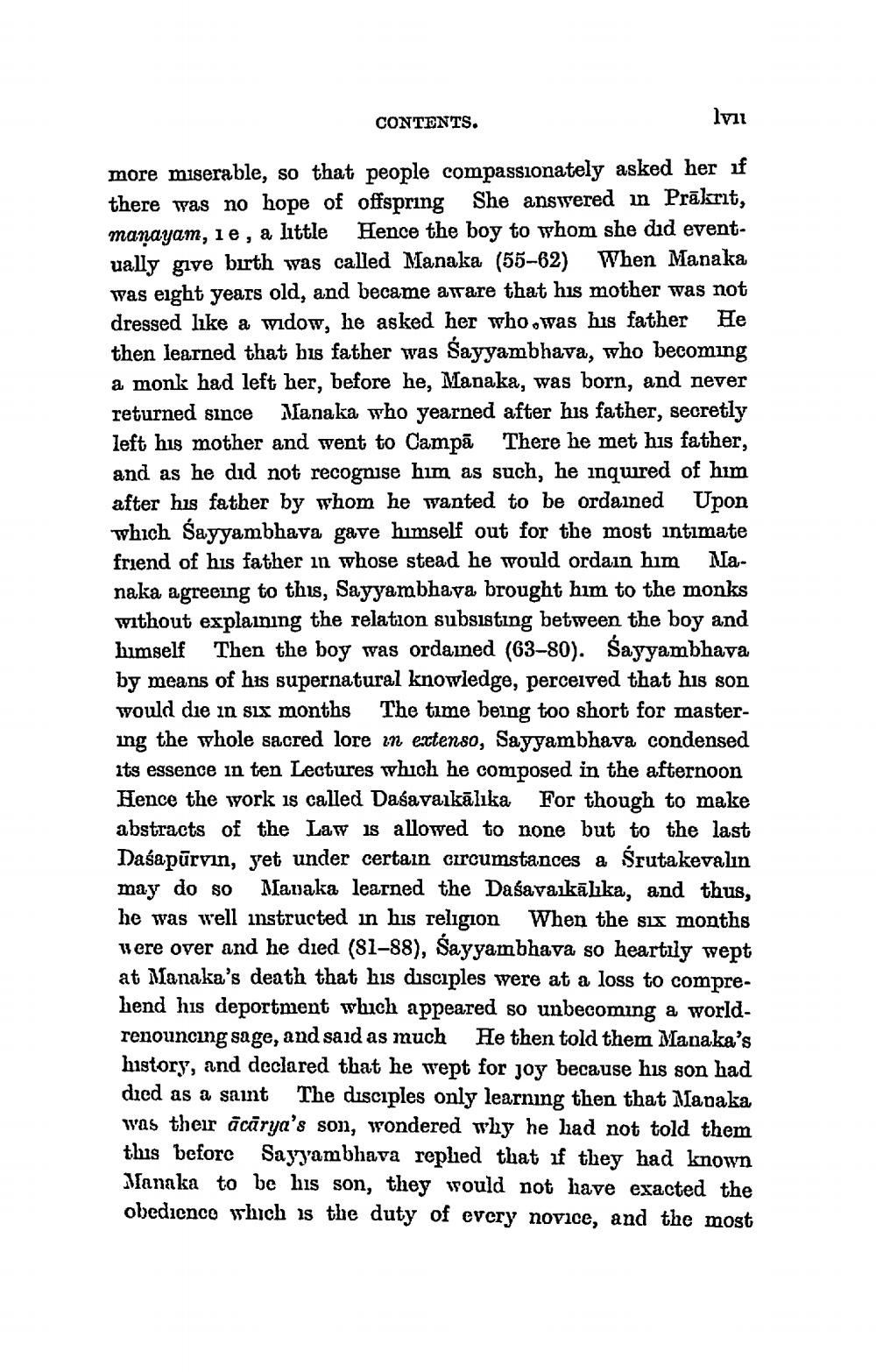________________
CONTENTS.
lvi
Ma
more miserable, so that people compassionately asked her if there was no hope of offspring She answered in Prakrit, manayam, 1e, a little Hence the boy to whom she did eventually give birth was called Manaka (55-62) When Manaka was eight years old, and became aware that his mother was not dressed like a widow, he asked her who was his father He then learned that his father was Sayyambhava, who becoming a monk had left her, before he, Manaka, was born, and never returned since Manaka who yearned after his father, secretly left his mother and went to Campa There he met his father, and as he did not recognise him as such, he inquired of him after his father by whom he wanted to be ordained Upon which Sayyambhava gave himself out for the most intimate friend of his father in whose stead he would ordain him naka agreeing to this, Sayyambhava brought him to the monks without explaining the relation subsisting between the boy and himself Then the boy was ordained (63-80). Śayyambhava by means of his supernatural knowledge, perceived that his son would die in six months The time being too short for mastering the whole sacred lore in extenso, Sayyambhava condensed its essence in ten Lectures which he composed in the afternoon Hence the work is called Dasavaıkālıka For though to make abstracts of the Law is allowed to none but to the last Dasapurvin, yet under certain circumstances a Śrutakevalın may do so Manaka learned the Daśavaikālika, and thus, he was well instructed in his religion When the six months were over and he died (81-88), Sayyambhava so heartily wept at Manaka's death that his disciples were at a loss to comprehend his deportment which appeared so unbecoming a worldrenouncing sage, and said as much He then told them Manaka's history, and declared that he wept for joy because his son had died as a saint The disciples only learning then that Manaka was their acarya's son, wondered why he had not told them this before Sayyambhava replied that if they had known Manaka to be his son, they would not have exacted the obedience which is the duty of every novice, and the most




